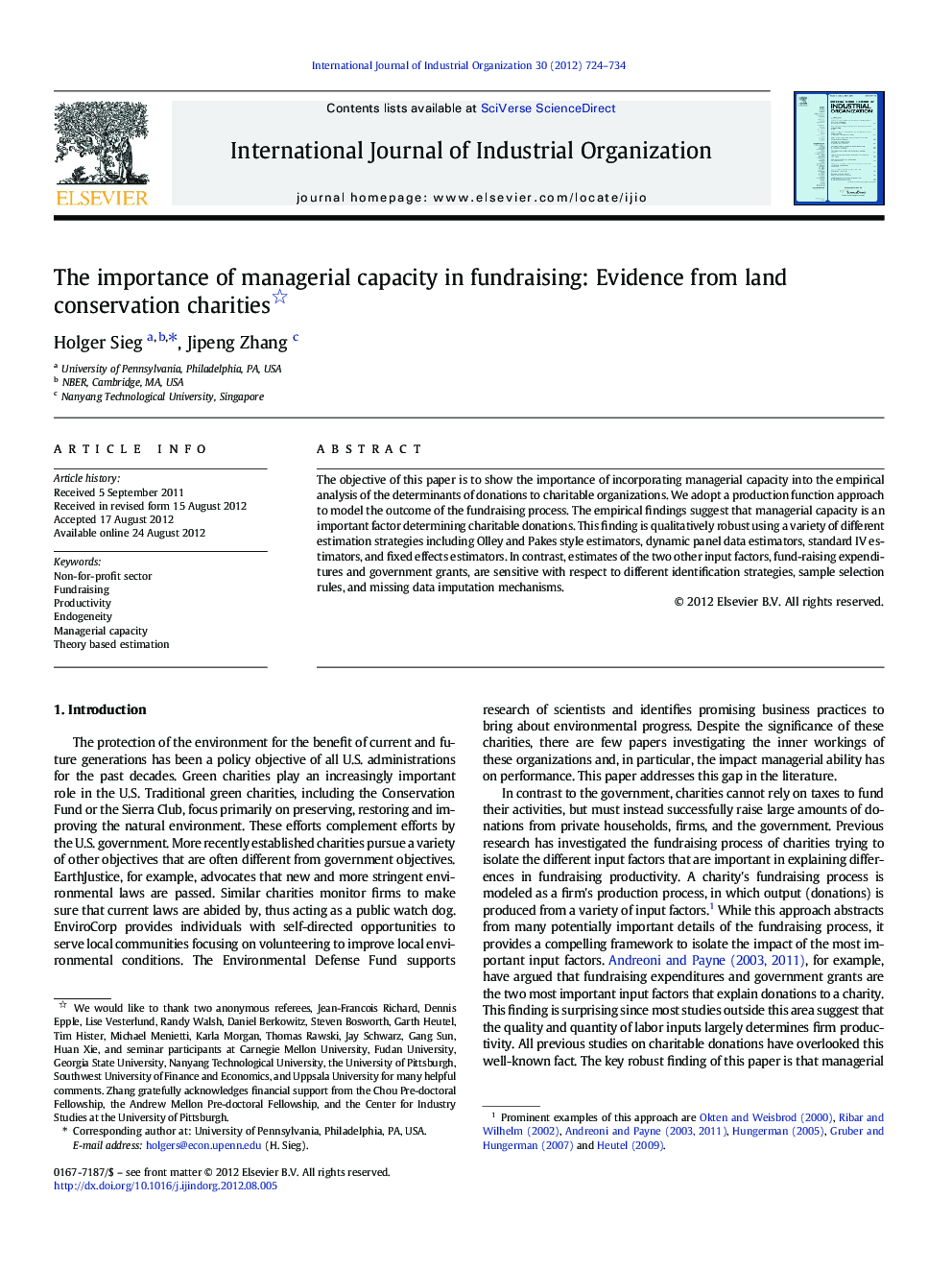| Article ID | Journal | Published Year | Pages | File Type |
|---|---|---|---|---|
| 5078042 | International Journal of Industrial Organization | 2012 | 11 Pages |
The objective of this paper is to show the importance of incorporating managerial capacity into the empirical analysis of the determinants of donations to charitable organizations. We adopt a production function approach to model the outcome of the fundraising process. The empirical findings suggest that managerial capacity is an important factor determining charitable donations. This finding is qualitatively robust using a variety of different estimation strategies including Olley and Pakes style estimators, dynamic panel data estimators, standard IV estimators, and fixed effects estimators. In contrast, estimates of the two other input factors, fund-raising expenditures and government grants, are sensitive with respect to different identification strategies, sample selection rules, and missing data imputation mechanisms.
⺠We show the importance of incorporating managerial capacity into the empirical analysis of the determinants of donations to charitable organizations. ⺠Charities invest in intangible assets such as reputation, goodwill, and organizational knowledge. Accumulated managerial expenses is a good measurement of the investment into intangible assets. ⺠After controlling for unobserved productivity, the estimated impact from managerial capacity on donations increases by 67 percent, while the impact from fundraising expenditures is reduced by 57 percent. ⺠Popular efficiency measures of charities do not reflect the corresponding long-run benefits of development strategies, such as investment in managerial capacity.
